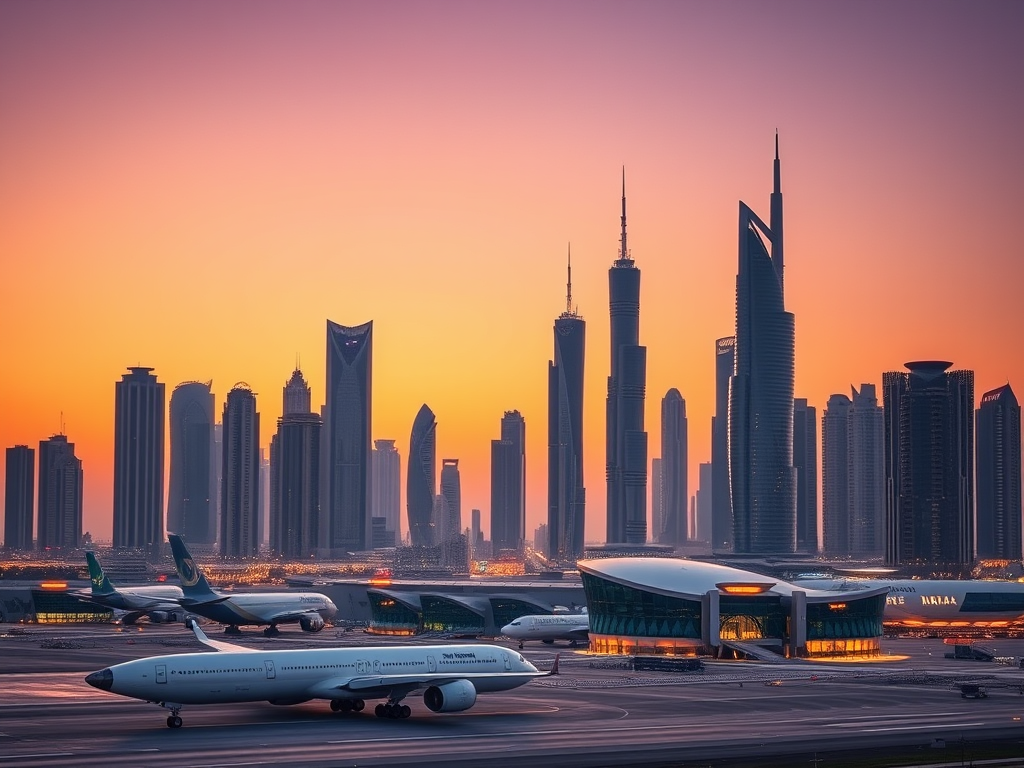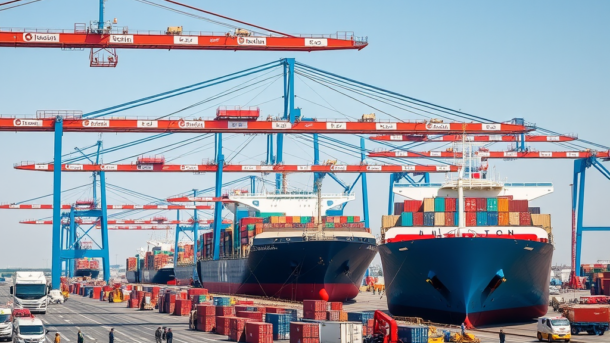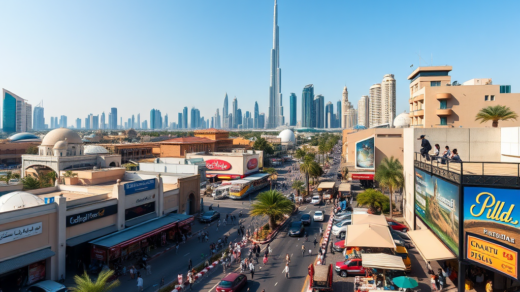As we delve into the intricacies of international commerce, one city stands tall as a beacon of opportunity: Dubai. Nestled at the crossroads of major world markets, this vibrant city has evolved into a dynamic hub for international trade. Businesses, both large and small, flock here, drawn by the strategic advantages offered by its geographic positioning. With its excellent infrastructure, favorable economic policies, and a multicultural workforce, Dubai not only facilitates trade but also nurtures innovation and entrepreneurship. In this article, we will explore how Dubai’s strategic location enhances its role in international commerce and why companies consistently choose it as their base of operations.
Key Geographic Advantages

The geographical location of Dubai is one of its most compelling attributes, acting as a vital link between East and West. Situated within a few hours of major cities such as Mumbai, London, and Johannesburg, it allows businesses to reduce shipping times significantly. This geographical edge enables companies to expand effortlessly into emerging markets in Asia, Europe, and Africa. As a result, a wide array of businesses finds value in establishing a presence in Dubai.
- Proximity to developing economies increases potential customer bases.
- Reduced logistics costs due to shorter transport distances.
- Rapid access to major global shipping routes and trade networks.
The dynamic environment of Dubai also serves as a fertile ground for nurturing relationships with local and regional partners. These connections are crucial for navigating the complexities of international trade, particularly in a region that exhibits diverse cultural nuances. Furthermore, the presence of a bustling expatriate community enhances collaboration among multinational corporations.
Infrastructure and Connectivity

Dubai is engineered for trade efficiency, boasting a sophisticated infrastructure that serves as a backbone for its trading activities. The city’s transport network is seamlessly integrated, featuring state-of-the-art ports and airports that elevate Dubai’s status on the global trade map. With rapid advancements in logistics, businesses can move goods quickly and efficiently, leading to improved operational timelines.
Dubai International Airport is not just one of the busiest airports in the world; it is also a crucial nexus for cargo flights that connect to various international destinations. Likewise, Jebel Ali Port is the largest man-made harbor globally and is pivotal in accommodating the growing volume of trade entering and exiting the region. The impact of these facilities on Dubai’s economy is monumental, making the city a preferred choice for logistics companies.
| Port/Airport | Type | Significance |
|---|---|---|
| Dubai International Airport | Air | Key hub for air cargo connecting to 240 destinations worldwide. |
| Jebel Ali Port | Sea | Handles approximately 20 million TEUs annually, pivotal for maritime trade. |
Economic Free Zones
The establishment of free zones in Dubai has revolutionized the trading landscape, creating environments where businesses flourish. These zones are strategically located near major transport hubs and provide numerous benefits that make business operations smoother and more lucrative. By offering these tailored solutions, Dubai encourages global companies to set up their regional offices here.
- 100% foreign ownership is allowed.
- No personal or corporate taxes for up to 50 years, renewable.
- Streamlined customs and administrative processes.
These incentives provide a level of financial motivation that is hard to ignore. Consequently, startups and well-established enterprises alike are attracted to Dubai’s economic prospects. The result is a vibrant market that attracts a multitude of industries, from tech to trading.
Multicultural Workforce and Business Environment
The workforce in Dubai is as diverse as its culture, with professionals from various nationalities contributing to the vibrancy of its economy. This multicultural atmosphere fosters innovation and creativity, enabling businesses to approach challenges from different perspectives. Companies harness the potential of a skilled labor pool enriched by various international experiences, thereby enhancing operational effectiveness.
- Enhances innovation through diverse problem-solving approaches.
- Boosts productivity by utilizing specialized skills from around the globe.
- Creates an inclusive environment that attracts top talent.
Moreover, the open and welcoming nature of Dubai encourages collaboration among different cultures, resulting in a robust business environment. Such a setting is conducive to the establishment of strong networks and partnerships, which are vital for navigating the complexities of international trade.
Trade Agreements and Global Partnerships
Dubai’s strategic location is further strengthened by its extensive network of trade agreements with numerous countries. These agreements are essential in enhancing trade facilitation, reducing tariffs, and promoting business relationships across borders. As a result, Dubai is able to attract investments and businesses from around the globe.
- Free Trade Agreements (FTAs) promote trade without tariffs.
- Partnerships with regional economic blocs enhance collaborative efforts.
- Reducing barriers for logistics and customs processes.
The consequence of these agreements is a thriving trade ecosystem that supports both local and international businesses. By facilitating easier entry into various markets, Dubai maintains its reputation as a leading trade nexus.
Conclusion
In summary, Dubai’s strategic location offers an impressive array of benefits for international trade. From its advantageous geographic position and advanced infrastructure to its welcoming economic landscape, Dubai has cemented its status as a global hub for commerce. The interplay of these factors makes Dubai an attractive destination for businesses seeking growth and expansion. With continued investment in its infrastructure and connectivity, the city is set to maintain its position as a pivotal player in international trade.
Frequently Asked Questions
- What makes Dubai a key hub for international trade? Dubai’s strategic location, advanced infrastructure, and welcoming economic policies make it a hotspot for global commerce.
- How does Dubai’s geographical location benefit businesses? Businesses benefit from reduced shipping times and access to diverse markets in Asia, Africa, and Europe.
- What are the major ports and airports in Dubai? The primary airports are Dubai International Airport and Al Maktoum International Airport, while Jebel Ali Port is one of the largest in the region.
- What incentives are available for businesses in Dubai? Businesses can take advantage of tax exemptions, full ownership, and strategic location benefits in economic free zones.
- How does Dubai’s workforce contribute to its trade capabilities? A diverse and skilled workforce fosters innovation, enhancing the overall efficiency and competitiveness of businesses in Dubai.



